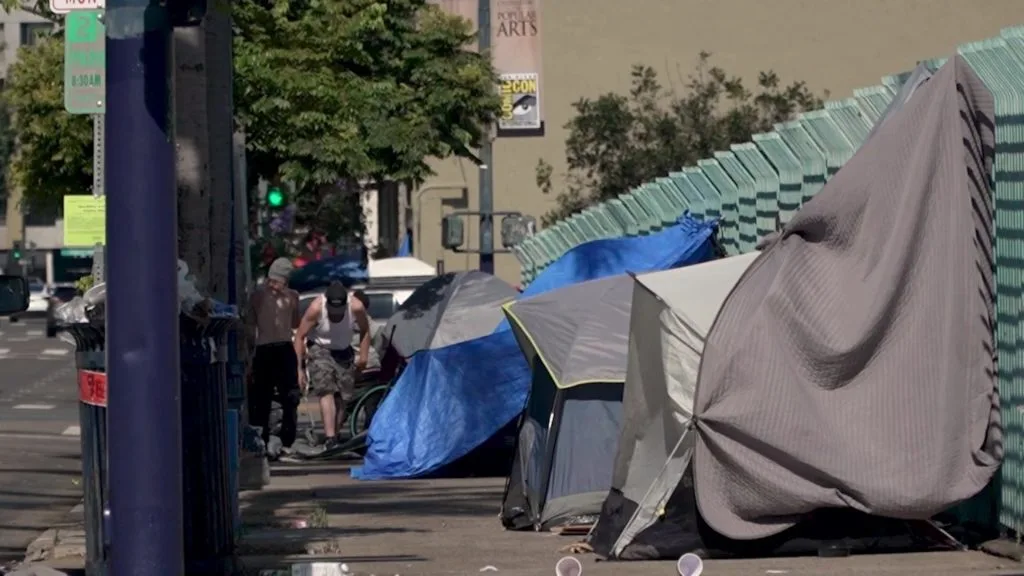
Stephanie Sy:
The new law will make it easier to court-order behavioral treatment plans for individuals with severe mental illness through so-called CARE Court.
Here’s how it works. A family member, behavioral health provider, or member of law enforcement petitions a court on behalf of someone with untreated schizophrenia or other psychotic disorder. After that, a court can order a clinical evaluation, and then a care plan that may include treatment, medication, and housing.
If the person fails to complete treatment, they could be considered for even longer-term state oversight. The approach is part of California’s effort to address homelessness. San Diego is one the pilot counties that will begin implementing the CARE Court in the fall.
On this hot July day, police dismantled a sidewalk encampment downtown. It’s a familiar scene in the Golden State, where it’s estimated that nearly a quarter of the unhoused suffer from serious mental illness.
Chronic homelessness is the result of multiple system failures, not just individual choices. The mentally ill cycle through the public health system, the housing system, and the criminal justice system. They may get some help along the way, but many of them end up back on the street.
Anita Fisher knows this all too well.

